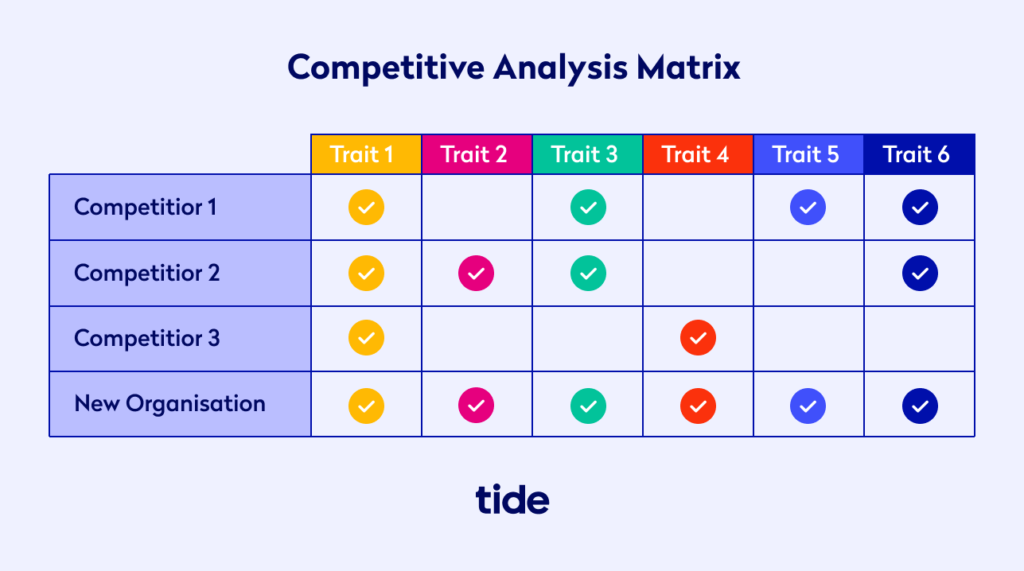
How to start a construction company

Whether you want to be a general contractor or an owner-builder, there are many things to consider when it comes to starting your own construction business: from researching the market to writing a business plan to getting funding.
Knowing where to begin and how to tackle the paperwork will get you started on the right foot. From there, the steps to launching a construction business are pretty straightforward.
In this article, we’ll cover how to research the market, register your company and write up a business plan. We’ll also address what you need to know about industry rules, financing your operation and growing your enterprise.
Table of contents
- Do your market research
- Define and register your construction business
- Write up a business plan
- Get to know construction industry rules and regulations
- Prepare to manage your finances
- Get clients and grow your construction business
- Wrapping up
Do your market research
Any successful startup or small business begins with a clear idea of the current market. You need to know what services are selling and how profitable your idea is before you invest time and capital to create it.
Here are three essential insights to include in your market research.
Identify your buyer persona
To frame your business in the best way possible, you need to know who you’re talking to. Defining your “buyer persona” means understanding your ideal customer, including the challenges that brought them to your business and their likes and dislikes.
Aim to know as much about your target customer as you can. You can begin by gathering general information about people seeking your services through online searches and sifting through forum queries. Running surveys and interviewing the types of people you’re aiming to serve are great ways to get firsthand information.
Top Tip: In-depth market research starts with understanding your target customer. To learn more about how to define your buyer persona, including what questions to ask, read our guide on how to conduct market research 🔍
Analyse the competitive landscape
Looking at what local construction companies are doing can be one of the best ways to vet your own plan. Check the following:
- Are there other construction firms already operating in your area?
- Do they offer the same services you do?
- What do they charge?
- What is their reputation in the community?
If the market is saturated with what you’re planning to offer and you can’t put into words what will set your company apart, you may need to rethink your business idea. On the other hand, if you can fill a gap in construction services or offer a significantly superior customer experience, you have good reason to finalise your plans.
To make sure you tick all the boxes, you can visualise how you’ll stand out by organising the information in a chart, like this:

Top Tip: Knowing how to differentiate your construction business can get your idea off the ground and help it become successful. Learn how to find out what the competition is up to and get a handy template in our guide on how to run a competitive analysis 📋
Map your customer journey
Once you have identified your buyer persona and where your business fits in the market, you’ll want to learn how people usually go from curious prospects to converted customers in your area.
In this important step, you’ll research how other companies typically find leads and convince them to use their construction service, plus how they care for them throughout the project. You’ll want to learn things like:
- If and how they advertise (e.g., wrapping vehicles in their branding)
- How prospects contact them (e.g., business cards or flyers with phone numbers)
- How businesses move customers through the proposal or quotation process (e.g., free quotations or initial meetings)
- What are the next steps when a prospect agrees to hire their services (e.g., sending contracts)
- How do they wrap up services (e.g., invoicing and acquiring testimonials)
Top Tip: You can create positive experiences that your customers will want to share by seeing where you can improve the customer journey. Learn more about the customer journey and how to plan your marketing and sales roadmap in our five-step guide to developing a winning go-to-market strategy 🗺
Define and register your construction business
Once you’ve done your research, you must make decisions about your company. Things like what type of construction business you’ll run and what your business structure will be are foundational to how the rest of your business plan unfolds.
Follow these three steps to make your company official.
1. Identify what type of service provider you’ll be
Instead of trying to cater to everyone, use your research and your particular skill set to figure out what types of work you’ll do. Here are three of the most common kinds of startup construction businesses:
- Small renovation contractor. Small renovation contractors focus on small-scale projects. Rather than building from the ground up, you would deal with things like home or office renovations or other small commercial jobs. As such, you don’t need a dedicated office. You meet with clients at their site and complete paperwork at home.
This may be ideal for someone just getting started with a limited budget. Often, small renovation contractors will move on to become general contractors as they gain more experience.
- General contractor. General contractors, sometimes called main contractors, have a broad range of expertise within the industry. You would manage construction projects ranging from building to renovating to remodelling, most of which require more than one speciality. You would essentially act as a project manager, overseeing subcontractors who do the work.
In this role, you’ll consult with clients on every aspect of the job and manage interactions with vendors and on-site workers. You would be responsible for providing estimates, managing budgets and controlling the quality of the materials and build.
- Owner-builder. Owner-builders are not classified as contractors because they don’t work for someone else. Instead, you would construct buildings that you own. Then you would either rent or sell the buildings for profit.
Owner-builders require the same skill set as general contractors and manage all the same aspects of the work. The difference is you’re acting as your own client throughout the building process and don’t deal with external clients until building completion.
Top Tip: Whatever type of construction company you run, you should be aware of the bookkeeping complexities that apply to your industry. Learn all about what to expect in our complete guide to construction accounting💡
2. Determine a business structure
Along with the types of services you’ll offer, you should decide what structure you’ll operate under. There are three types, and each has different advantages depending on your needs. They’ll also shape your business plan, so it’s important to decide carefully.
- Sole trader: This is the simplest structure. In a sole trader business, there is no distinction between your personal and business finances—meaning you’re personally responsible for your business’s debts.
- Partnership: This is where more than one person owns the business. You form a partnership agreement that outlines the obligations and rights of each partner to help prevent or settle any disputes down the road.
- Limited company: Here your business finances are separate from your personal finances. Starting a limited company can protect your personal assets from any company troubles and can make you look more professional. However, it does come with more reporting and management responsibilities.
Each structure entails certain accounting responsibilities, and you need to be aware of them to keep things running smoothly.
Top Tip: To manage your construction business responsibly, you’ll need to understand and organise your accounts from the beginning. Get the basics, plus expert insights, in our complete guide to small business accounting 💰
3. Register your company with HMRC
Depending on the business structure you choose, you’ll be responsible for different types of reporting, management and accounting. And you’ll need to register accordingly. Here’s a quick overview of what it takes to register each business structure.
- To set up as a sole trader, you’ll need to register to pay tax through Self Assessment. You’ll track your business expenses and income and file a Self Assessment return every year.
- As a non-limited partnership, you’ll need to choose a business name and register with HMRC. You’ll also nominate one partner to register the partnership for Self Assessment and manage financial records and tax returns.
- A limited company (including certain types of partnerships) is required to choose a company name and register with Companies House. They must also register for corporation tax.
Top Tip: The business structure you register as depends upon the specifics of your company. Take an in-depth look at each structure and compare the registration process, fees and tax requirements in our guide on how to register a business in the UK 🏗
Write up a business plan
Once you know what kind of company you’re running, it’s time to write your business plan. A business plan defines how you’ll run your company and how you’ll achieve your goals. It’s also a crucial element for raising investment money or getting a loan. Potential investors and lenders will want to see that you have a solid proposal that poses minimal risk.
There are important details for each component of a good business plan, but generally, it should contain the following sections:
- Executive summary (a high-level description of your organisation)
- Company description (your history and future plans for your company)
- Market analysis (details of your target market, customers and competitors)
- Management and company structure (how your firm is organised and who’s running it)
- Service or product information (what you offer and how it stands out in your market)
- Marketing and sales strategy (how you’ll bring customers in and drive sales)
- Funding information (the amount you need to start your business and how you’ll allocate the funds)
- Financial projections (forecasts proving a positive company financial outlook)
- Appendix (any supporting documents lenders and investors may require)
Top Tip: To give yourself the best start possible, you need a detailed plan that outlines how you’ll make your company successful. Learn everything you need to know and watch a Masterclass video in our complete guide to writing a business plan 🙌
Get to know construction industry rules and regulations
As a construction business, you’ll be accountable to some industry-specific rules, regulations and tax obligations. To avoid surprises, you should familiarise yourself with these responsibilities.
Here are some important initiatives to know about as a new construction business.
Construction Industry Scheme (CIS) and Value Added Tax (VAT)
If you’re working as a contractor or subcontractor in construction, you’ll need to register for the Construction Industry Scheme (CIS). This is a tax scheme that helps prevent common types of fraud in this industry.
Under the CIS, you must follow certain rules around hiring and paying subcontractors. You must also deduct money for taxes and file monthly returns with HMRC. As a new construction business owner, you can learn more about what the CIS entails and who it applies to at GOV.UK.
Depending on your business size and activities, you may also be required (or choose) to register for VAT (the value-added tax charged at every point of sale for eligible goods and services).
Note that CIS-registered contractors are also responsible for what’s known as the VAT domestic reverse charge. This places the responsibility for paying VAT on the consumer (contractor) instead of the supplier (subcontractor) and is in place to prevent common industry tax fraud.
Top Tip: Understanding the VAT domestic reverse charge will help you ensure the accuracy of your returns. Learn which projects the reverse charge applies to and how it works in our complete guide to domestic VAT reverse charge procedure ✅
Health and safety compliance
Construction work is inherently risky, so construction companies are legally required to comply with industry standards around job site health and safety.
Do your research and make sure you know how to keep your workers safe. Knowing the rules will also help you avoid any penalties or legal action against your company. You can learn about safety regulations from the Health and Safety Executive at HSE.GOV.UK.
Building regulations
Most of the commercial and private projects you work on will be subject to national building regulations. You need to know who they apply to, what they cover and what enforcement looks like. Again, you can learn details at HSE.GOV.UK.
Insurance and liabilities
You’ll want to protect your business against costly accidents by holding the right kind of insurance. There are many types of available insurance, and the ones you need will depend on the size, structure and type of construction business you have.
For example, public liability insurance covers you against injury or property damage. You may also want to look into insurance to cover damage or theft of tools and materials.
Some forms of insurance may be legal requirements. Employers liability insurance, for instance, is mandatory for construction companies that hire employees. And some clients may require that you have sufficient coverage before they’ll hire you. Be sure you know what you need and stay up to date on all your policies.
Prepare to manage your finances
Managing your cash flow closely from the beginning is crucial to running a successful business. Here are the finance specifics you should be aware of as you start your own construction business.
Startup costs
The good news is that it can be relatively inexpensive to start a new construction company. Because the work happens on a job site, you often don’t need a base office. In addition, if you’re starting a company, you likely have some construction experience, so you might already own some of the equipment you’ll need.
The average budget for a construction startup in the UK is around £5,000. These costs generally include things like registering expenses, professional fees for financial advisors, accountants or other consultants you use and marketing and branding on things like a logo, website, signage or advertising.
Fundraising
Startup costs can be reasonable, but it’s easier to secure funding if you plan ahead to minimise what you may need to raise or borrow. When you do need financial help, here are some of the most common funding sources to consider.
- Business loans. Traditional loans through banks or other commercial lenders usually require security—either some business asset or a personal guarantee to repay the loan in case the company can’t. These loans can be difficult to secure, and if you don’t have good business or personal credit, be prepared for more strict loan requirements or costly interest rates.
- Government startup loans. The government offers government-backed personal loans from £500 to £25,000 to start or grow your venture. Unlike business loans, these are unsecured, and you can get free mentoring to help you through creating the needed business plan and cash flow projections. Learn more about government startup loans at GOV.UK.
- Angel investors. Private investors will sometimes agree to put money into your company in exchange for equity. They tend to be successful entrepreneurs and can help advise you as you learn the ropes. But taking capital from an investor means you’re also handing over some control of your company. You can find information on angel investors on the UK Business Angels Association (UKBAA) website.
Top Tip: A business bank account can be vital to building your business credit and securing a business loan. Learn all about what you should look for in our complete guide to choosing a business bank account 💸
Cash flow considerations
It’s important to consider the costs of keeping your company afloat once it’s up and running. In construction, cash flow isn’t always consistent. The project-based nature of the work means cash comes in when contracts are finished, and the amounts depend on project size and scope.
Record keeping is crucial preparation for covering the costs and taxes you’re responsible for. You also want to plan for fluctuation. In addition, opening a business bank account can help keep you stable. Many offer you overdraft protection for times of low cash flow. Having a separate business bank account also helps you establish credit so you can secure a business loan.
Top Tip: To manage cash flow and achieve profit margin goals, you must accurately track and estimate project scope and costs. Construction companies and small businesses do this through a process known as job costing. Learn more about tracking costs by reading our guide to job costing 📈
Get clients and grow your construction business
The last step in starting a successful construction company is growing it. You’re ready to start earning, and it’s important to set yourself up for success when it comes to getting paying clients. Consider these three tips for expanding your business.
1. Focus on return customers and referrals
It’s easier and more profitable to retain existing clients than to onboard new ones, so you want to ensure you’re keeping customers happy. Provide top-notch customer service and always be professional on the job.
Look to positive reviews of successful construction businesses. You might find that customers like to rave about accurate quotes and frequent communication with contractors. This means to win positive reviews for your business, you’ll want to keep on top of your bookkeeping so you know how much things cost, and you’ll want to keep the customer updated on the project at all times.
You’ll also want to create a system for gathering testimonials and encouraging referrals. You may want to register your business on third-party rating websites, like Checkatrade, and include the link on your final invoice. You can also request testimonials via email once a job is complete and feature your best reviews on your website alongside images of your work (with the customer’s permission).
Word of mouth is a powerful marketing tool. When you offer a high standard of work and are easy to work with, people will remember you and recommend you to others.
2. Market proactively
In this day and age, extending your business’s reach usually means creating a digital marketing strategy. Customers are actively looking for social proof and visual examples of work before committing to brands, so keeping a curated website or social media accounts can help them answer their questions about your business.
You can also be proactive by regularly interacting with potential customers on social media, answering questions or sharing your expertise in the comments section. Advertising online through social media and PPC ads can aim your business specifically at customers who are searching for your services.
Because construction companies often work with local customers, you’ll want to look at the marketing practices of your competitors (your research will come in handy here). If they are a part of local groups or forums, you should be too. This helps to build trust with your community and spread the word about your business.
However you decide to market, do your research and track your results. In particular, you should track your return on investment (ROI) on any advertising you do so you know it’s profitable and worthwhile. As your business grows, you can develop and optimise an informed marketing strategy that works.
3. Build your brand
Branding is all about being top of mind for your potential clients. It’s more than creating a logo and handing it out on business cards. To build a truly memorable brand, you need to factor in some of the research you’ve already done and then expand on it.
Building a brand starts with knowing your audience and your competitors. Once you’ve understood who your buyers are and what they’re missing from other services, you can develop a positioning statement that explains your offer and tailor your brand personality.
For example, a construction company that builds affordable homes will have a different approach to their branding than a construction company that installs below-ground pools in multimillion pound gyms. Furthermore, a company that wants to differentiate from a high-priced competitor might emphasise their expertise in the industry or long-standing reputation in the community.
Once you’ve settled on your brand positioning and personality, you can design your assets. Create a logo that suits your brand and start putting it on customer touchpoints, like your website, social media, business cards, etc.
As mentioned earlier, you might want to research what other companies in your area are doing to get their name out into the market. If they have printed t-shirts and vinyl signs that hang on fences where they work, you may want to increase awareness this way too.
Wrapping up
Starting your own construction company is an exciting venture. And making that venture successful means taking a methodical approach to ensure you cover every aspect.
Building and running a successful company takes industry know-how and good financial planning. A business account will let you start building your business credit and automate recordkeeping. You can get started by opening an online business bank account with Tide. Preparing for the future will leave you free to focus on the important work you do.
Photo by Pixabay, published on Pexels






